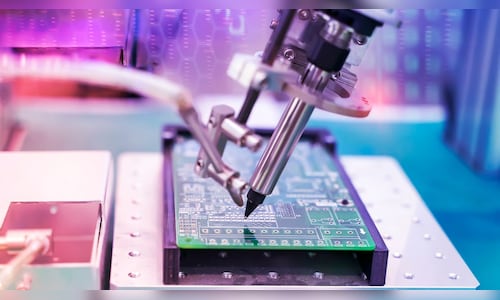Lutnick highlighted the March decision by Taiwan Semiconductor Manufacturing Co., which received $6.6 billion in Chips Act grants, to increase its US investment commitment. The firm is adding $100 billion to its earlier $65 billion pledge, albeit without any extra support from the government, Lutnick noted.
“Are we renegotiating? Absolutely, for the benefit of the American taxpayer, for sure,” Lutnick stated Wednesday during a Senate Appropriations Committee session. “We’re extracting more value for the same funds.”
The Commerce Secretary also indicated that the administration might not proceed with certain planned awards. “You will see that all the deals are improving, and the only agreements not being finalized are those that should never have been made in the first place,” he remarked.
Trump has called on Congress to repeal the 2022 Chips and Science Act, a key element of President Joe Biden’s domestic policy. However, both Republican and Democratic legislators show little inclination to overturn a bipartisan law that promises $52 billion in subsidies. Lutnick has suggested that the Commerce Department could withhold Chips Act grants to encourage companies to follow TSMC’s lead in expanding their domestic semiconductor initiatives.
During his nearly two-hour testimony before the panel, Lutnick discussed various critical issues impacting the semiconductor sector, including the administration’s efforts to attract more chips-related investments to the US. He defended AI agreements made with the United Arab Emirates during President Donald Trump’s recent trip to the Middle East, asserting that these accords were designed to stimulate complementary spending in the US.
The groundwork for those AI agreements in the Gulf was laid by the administration’s move to repeal a regulation introduced during President Joe Biden’s last week in office, which faced strong objections from US allies and companies like Nvidia Corp. and Oracle Corp. The so-called AI diffusion rule — intended to block China from accessing advanced semiconductors through third parties — was set to take effect last month and would have created three broad tiers of access for nations seeking AI chips, an approach that Lutnick criticized as “illogical.”
In its stead, the Trump administration is shifting toward negotiating individual agreements with countries while maintaining security assurances designed to prevent Chinese firms from acquiring AI chips. “Our stance is to allow our allies to purchase AI chips, provided they are managed by an approved American data center operator, and the cloud accessing that data center is also a sanctioned American operator,” Lutnick stated.
Tensions regarding US efforts to curb China’s technological ambitions have exacerbated trade conflicts between the world’s two largest economies. Trump and Chinese officials have accused one another of undermining the spirit of recent negotiations in Geneva, with Beijing expressing dissatisfaction over American chip export controls and Washington concerned about China’s restrictions on critical minerals sales.
The US has pressured allies to avoid adopting Huawei Technologies Co.’s new Ascend chip, cautioning that any adoption could breach export controls set by Washington. The Commerce Department mentioned last month that it was issuing guidance to alert the public about “the potential implications of permitting US AI chips to be used for training and inference of Chinese AI models.”
Lutnick asserted that China still lacks the ability to manufacture large quantities of advanced semiconductors, indicating that US export controls have constrained China’s technological advancements. He estimated that China might produce around 200,000 advanced chips, like those used for training artificial intelligence services or powering smartphones, a minuscule figure relative to the country’s demand.
“They claim they are producing them, but they are not,” he remarked.



